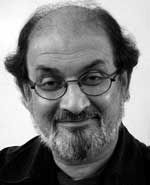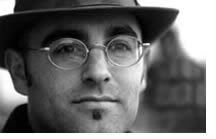Yes friends Lee Randoloph is up to his old tricks of debunking Christianity by applying the wrong model (computer based data flow business models) to a four thousand year old text written for spiritual reasons. Unconvinced by my porsts that the Bible has to be valid and fit for the niche in which was designed, or it wouldn't have lasted four thousand years, and undaunted by facts or scholarship, Randolph is back for another session of "see how close you can come to answering the argument without really doing it!"
Christians Must be Agnostic on the
Debuncking Christianity BlogBy Lee Randolph at 1/19/2009
The Use Or Intent Of Information Does Not Determine Its Quality
Over at Sophies Ladder, Jeff says
"Reliability, on the other hand, I take to mean “can be dependably used” and so, obviously, reliability relates to the purposes intended."
Reliability is not an IDQ dimension, however it clearly is important. But the use of the information does not determine its quality. Poor quality data can be used to make a living with. Its called Fraud. Information can be presented in such a way as to be persuasive whether it accurately represents real world states or not.
He's arguing with someone named
Jeff at "Sophies Ladder" who answered the article that I do (see the link above). Some of his responses seem that they may be also aimed at my arguments, but he does not say so.
I assume that he's making this argument because he's trying to answer my argument that his model (Information Data Quality, aka IDQ) Is wrongly applied. He thinks it's a simplistic issue of just getting some facts wrong. It's just as simple as the ancient Hebrews were idiots and got everything wrong, so the Bible is not true and that's all we need to know. IF that were the case we don't his big gimmicky IDQ thing. All we need do is show a few facts out of place. Atheists are never content to just state the obvious, or their views (whichever come first) and let it go at that. They have to treat the Bible into little pieces. That's not good enough so they have grind it into dust. That's not good enough so they have to burn the dust. Still not good enough so they have to throw the ashes into the wind. Not good enough so they have to curse the wind which carries the ashes.
The point is not that the way people mean to use the information is key to it's truth content. The point is that it's about what kind of information we should expect from it. If no one ever arrived at a transformational state by reading the bible then we could say truly the Bible is false. But that's the only case in which we can say that, because it is just not made to supply another kind of information. I fear the atheists don't understand this, and can't understand it, and that they can only think in terms factual correctness in scientific matters. Ironically the people who choose cultural relativism as their guide cannot understand cultural differences.
Blaming The Victim
Is the Bible reliable – not as a history or science book – but as a conveyor of information regarding the transcendental, spiritual realm? How can one ever know? There is nothing to compare it to, nothing to triangulate (aka cross-check) it with. That is really the point of all my IDQ articles.
This is clearly a counter to
my articleon the cadre blog taking him to task for his gimmicky approach. How can one ever know? The answer to this is clear: we aren't meant to know in the way he wants to know. He will only value factual scientific knowledge as knowledge. He will only value as knowledge that which is verifiable. This is not about verification and it's not about facts. Its' about the things atheists fear the most: the "subjective!" the dreaded subjective.
We can only have something to compare it to by experiencing the presence of God because that's that's what we compare to.
Using the information in the Bible, the Christian remains agnostic about God whether they realize it or not. For example Jeff brings up Jesus' encounter with Nicodemus.
Yes, if the only form of knowledge you recognize is science and verifiable things then that's true. But to use (those of us who actually know God in a personal relationship) that is not the only valid from of knowledge. Therefore we can know. We know the way the Bible tells us we know: "he who loves knows God." (1 John 1). We know in the heart, we know in the spirit. I don't expect these DC guys to do anything but that laugh at that. I understand why they must, better than do. I was an atheist and Played that little of run form God.
“How can an old man go back into his mother’s womb and be born again?” he asks. Jesus chastises him for not knowing any better than to be so literal. “You’re a master of Israel and you don’t know these things?”
This is completely ambiguous and, additionally, lacks nurturing. Can anyone be blamed if they don't understand something that is presented ambiguously?
Yes of course they can. that's the whole point of presenting it. why would Jesus say "you are teacher of Israel you should know this?" Because it's something he should know. It had a place in their culture. Of course the atheist is assume we can't understand it today because he can't accept that there could be validity to the born again movement. So he just choosing wink out on the info and pretend t has to be wrong a priori. We know exactly what this means, there is nothing ambiguous about it.
Generally, teachers are held accountable if the students don't comprehend the information. In a small percentage of cases, the student has some individual difficulty that prevents them from grasping the information whether its ambiguous or not. When that is the case, the student is not chastised. In all cases, principle dictates that more attention is given to the student, until the student can comprehend the information.
Since I can't beleive Randolph is really stupid, I have to assume he's being deliberately obtuse. How puerile to try and make it seem as though Jesus is to blame for Nicodemus' refusal to recognize the obvious. For Nic what Jesus was saying was obvious, that is clearly the reason for Jesus' statements. He's just basically saying "you don't accept this because it steps on your party line but you know I'm right." Nicodemus knew exactly what was going on.
From the text it doesn't seem likely that Nicodemus was being deliberately difficult,
To the contrary my friend, it could not be more clear. Why would anyone say "you are suppossed to be X (the big expert) and you don't know this? The time when you say that is when you either have a very clever idea and you want to underscore how superior you are, or when the other guys sees what you are saying but avoids the obvious because he can't handle it. It is sufficiently obvious that he's speaking spiritually and not in terms of re entering the mother's womb (which is clearly a stupid thing to say--obviously being factious)such that the other alternative is the obvious one to pick--what he was saying was clear and Nic was just avoiding the inevitable.
it seems that the material was exceptionally difficult for Nicodemus, and, as we can see, it is of poor quality because it demonstrates the IDQ flaws of Incomplete Representation and Ambiguous Representation. Simply stated, Jesus did not explain himself clearly.
they weren't talking brain surgery. He said "you must be born again" the other guy says "do I have to really go back and be in my mother's womb again." Is that really so very complex? No, I don't think so. Not when the Jews had concepts that pertained to being born again. That was the idea of baptism. One was symbolically buried in the grave (of water) and rose up from it to a new life, born again! Its' really not brain surgery.
Simply stated Nicodemus is being blamed for not understanding.
He's being blamed for avoiding the obvious.
Is the material impossible to convey in words? Considering how common the phrase "Born Again" is, when clearly explained, it can be "understood" by some. But Jeff says
In the case of the Bible, it is likely that it’s not possible to speak plainly, given the subject matter.
Not 2000 years latter, in another culture, with another language. That doesn't in any way mean they could no understand plainly back then. That was their turf. they were fit for their own culture.
If God Engineered Us, And If We Don't Get It, It's Not Our Fault
Typical atheist bulllshit. you spend your whole lives running from God and telling yourselves how justified you are for your hatred of God and refusal to open your eyes to the truth, throw elaborate justifications about how it's not your fault, it's God's fault you sin. All you have to do si approach god and say "Ok hey I want truth." No big deal but you just spend your whole lives working to convince yourselves that you are not to blame.
Yonder stands a man in this lonely crowd,
A man who swears he's not to blame.
All day long I hear him shouting so loud,
He's crying out that he was framed.
**Chorus
Any day now, any way now,
I shall be released
(Any Day now, Bob Dylan)
Alright, I'll stipulate that "it is not possible to speak plainly given the subject matter" for the sake of argument and I'll point out that if the material necessary to be comprehended to obtain salvation is too complicated for our minds, then, since God supposedly engineered us, he is solely responsible. But he has another option. Being all powerful and the creator of all things gives him the option of implanting the knowledge directly in the brain. There's no excuse for the material to be unobtainable, incomprehensible unless it was of poor quality.
That wasn't what I argued (assuming he's answering my criticism). I argued not that salvation is too complex to understand what he's saying, but that the text is deeply embedded in a foreign culture to understand its ambiguities and shot comings.That does not mean that this passage is one of them and clearly it is not. Now maybe if we didn't have the Dead Sea scrolls it might be, but given what we know now about their culture its' pretty easy to understand what "born again" means.
Getting Burned is All You Need To Know About Fire
At this point Jeff tries to build the case that
OK so he's arguing against Jeff. But my arguments were along the same lines.
There is something very small about a concept if it can be contained in words alone.
additionally he goes off down a slippery slope. He asks
Why do we shout for joy or turn to music to express ourselves, if words alone can suffice?
but he seems to ignore the fact that plenty of understanding goes on without shouting for joy or turning to music. The theory of General Relativity and String Theory can be explained in words alone, it takes a long time, and a lot of words, but it can be done. I know because I understand them and can explain them. I can also explain how schizophrenia is produced by a genetic mutation, and how human behavior is affected by that. I can also explain the History of the concept of the Soul starting with Orpheus. In my opinion someone who says that a thing is indescribable doesn't understand it well enough to talk about it.
AT this point Randolph is simply resorted to nonsquitters. This is the sort of thing atheists do in argument that leads me to say they can't follow an argument. This is merely irrelevant info that's put it in to mislead. The fact is we are dealing with one type of information not all information. He's trying to reduce all forms of knowledge to it's scientific complements instead of dealing with the kind of knowledge implied.
The respondent to whom the argument is addressed apparently feels that aspects of Biblical truth transcend scientific and factual knowledge. But Lee irrelevantly inserts the information that not all knowledge is beyond the factual level, as though saying this somehow means the text is not dealing with that after all.
Remember I said is not what is done with the information, but what kind of kniwkedge of information is expected?
Data Abstraction
Jeff goes on to reference John 21:25 where Jesus says that the world cannot contain the books necessary to express the Logos. That's fine, but using data abstraction, I don't need to know how fire works or how my computer works, or how the elements in my steak marinade combine for me to benefit from them. Likewise I didn't need to know how the Logos worked for more than thirty five years as a Christian to appreciate it. When I realized that the Jihadists were right when they said that it looked like their prayers were answered and Allah guided those planes into the towers and that, to me, it looked like God was ignoring the prayers of those people jumping out of the towers I decided to stop using a double standard for my religion. I started to "cross-check" Christianity.
Typical atheist red herring. You can't answer an arguement so bring in some other argument you feel confident of answering and inset it as though ti's some all important show stopper: well why God allow pain>"
so the discusion looks like this.
Atheist: the Bible is crap because A b c
believer: no its' not because x, y, z.
atheist: o yea, well God allows pain and pain is so God is bad.
show stopper, ta Da!
The all purpose hand dandy red herring that has nothing to do with the issue but allows the atheist to vent and reminds his audience ("O yea, I remember now, I really hate these Christian guys").
Circular Reasoning And Shooting Yourself In The Foot
Jeff's reasoning is circular. There is nothing to Triangulate his data except with such things as the Bible, his personal experience, the personal experience of other Christians, the personal experience of non-christians and Science. Unfortunately the more data we accumulate to triangulate with, the weaker Jeffs case gets. While Jeff continues to minimize the importance of the text of the Bible and emphasize the importance of the inner dwelling of the Spirit, he keeps using Biblical texts to support his case. The problem is that he is weakening his own case by minimizing the information in the Bible.
I showed Lee that his argument is circular, see the link above.
Christians Must Be Agnostic About The Things They Do Not Agree On
Unless Christianity can value each others information equally, they must remain agnostic on the topics they do not agree on. The topics they do not agree on get to the fundamental tenets of Christianity. Since that is the case, Christians must necessarily be agnostic about a large percentage of the things they think they know. They must be Agnostic.
Of course this only seems that way to someone who refuses to accept Christian categories. You only value atheist thought categories so you just reflect upon the failure of Christians to think like atheists and to settles it, they are very stupid.
But its' only because you don't recognize the things that matter to them.
Christianity is a disorganized mess and it has all the symptoms of an organization that needs their data cleaned up using the principles of IDQ.
translation: they don't think like I do. boo them. boo boo boo.
Christians are real failures as atheists.But I think that would be its undoing, and I think that Christians know that intuitively, and that the biological algorithms for comfort and self-preservation kick in to preclude them from committing to the inference from the Data.
With help from John, Prup, and an Ed Babinski article, here are a list of some disputed topics within Christianity.
And following that, I listed the staggering number of Christian Denominations.
this is as childish and irrelivant as any argument i've seen.
Look dear reader at what just transpired. He failed to answer the arguments put forth about his gimmicks, so he inserted a bait and switch, brought in red herrings and proclaims victory because no answers his read herrings (because he just brought them up).
His overall point is that the Bible fails by the stands of this modern computer business data thing, and rather than think about it according to the categories of thought under which it was written, be pretends like its' some modern business plan and it failed by that standard so he proclaims that it failed over all, and to put the icing on the cake he throws in this mess of an argument that tires to turn a fine strength like diversity into an weakness and fault. He doesn't even bother to do the request historical analysis on the development of the various sects we can understand why the proliferating, or to put them into their historical context so we can judge if they are really evidence of some weakness in the faith.
I would really love to see him try to come to come to terms with something relevant like the historical reasons for proliferation of Christian groups rather than this gimmicky red herring nonsense.




